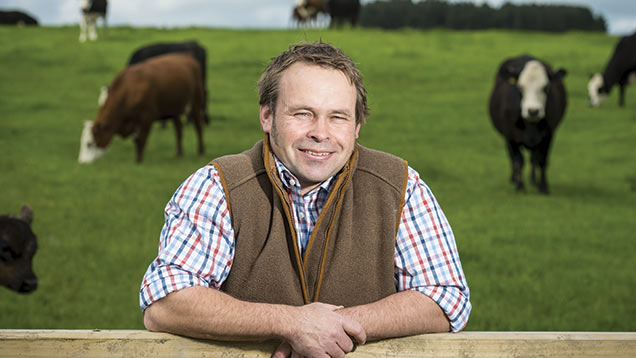Farmer Focus: Housing cattle cuts our margins
 ©Jim Varney
©Jim Varney I’m looking to put up a new cattle building and as I tap my calculator I can’t help think that my margin would be healthier if I didn’t have to house all my cows.
However, farming in the Northumberland uplands in the winter is always a challenge as it is England’s coldest county and has a short growing season.
We will house the in-calf heifers and finishing cattle at the beginning of October to help manage grass through the autumn and winter for tupping. Cows and calves will stay out as long as possible, depending on ground conditions.
See also: Read more from the livestock farmer focus writers
One or two beasts are just starting to cough, so all calves and growing cattle will be dosed against lungworm (husk). Bulling heifers had been vaccinated against lungworm prior to bulling. Calves will also receive their first Rispoval 4.
We have a vet herd and flock health plan, a comprehensive vaccination policy and do disease horizon scanning, as no farm is an island.
Lamb weaning weights have been good, averaging 37kg from cross ewes, and 31kg for hill-bred lambs.
Lambs have been split into short, medium and long-term keep and having bought a Fecpak worm-egg testing kit, we have now wormed the medium and long-term with an orange wormer.
Rotational grazing suits the cattle, but sheep perform better set stocked.
However, rotational grazing improves grass quality and quantity.
Productive grasses and clovers love to be taken off quickly and allowed to rest and regrow.
Today is our annual organic/Red Tractor inspection, with everything being assessed and inspected. It means everything is in place if we are inspected for another purpose.
I hope that “earned recognition” will be introduced, with those being inspected for certification schemes less likely to require additional inspections.
Our stock is whole-life assured and we are proud of that. It’s good value for money as we couldn’t sell our lambs or beef into the markets we do without being assured, and we more than get that investment back.
Simon Bainbridge runs a 650ha organic farm in Northumberland alongside his wife Claire and his parents. With 150 suckler cows and 1,5000 breeding ewes, healthy maternal livestock and quality feed are priorities.
